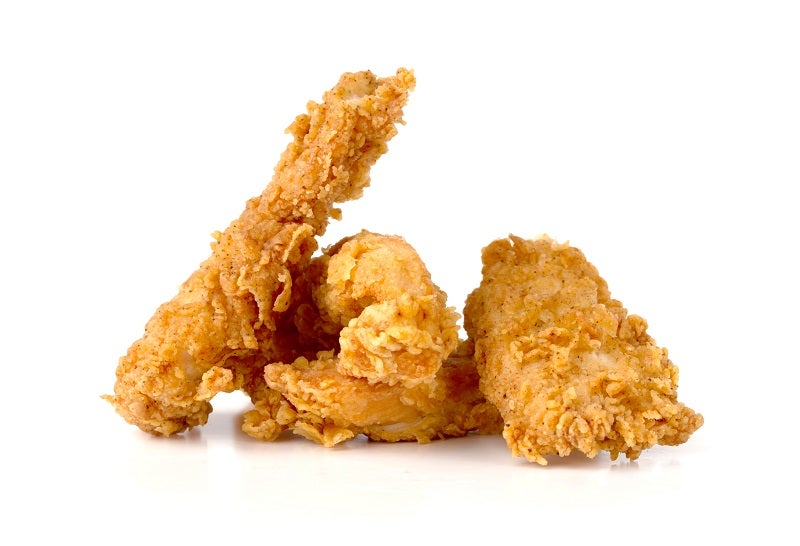KFC is 3D-printing chicken nuggets but will consumers eat them? With environmental concerns a factor in more than 40% of consumers’ product choices, there is likely to be at least interest in trying out the new food when it hits the market.
The fast-food giant has teamed up with 3D Bioprinting Solutions, which is developing additive bioprinting technology that uses a recipe of chicken cells and plant ingredients. The new nuggets will be designed to emulate the taste and appearance of meat nuggets while being more environmentally-friendly and ethical to produce than ordinary chicken meat.
KFC and 3D Bioprinting Solutions will use chicken cells and plant-based material to cultivate the new kind of nugget. The foodservice operator, which is providing ingredients such as breading and spices, says there are no other methods available on the market that can create “such complex products from animal cells”.
KFC said “receiving a final product for testing” is planned for this autumn in Moscow for “partners, market experts and media”. Based on the test results, the operator then says it will decide on “further steps”.
So why is an established global chicken-focused restaurant brand getting involved in the 3D printing of meat?
According to GlobalData’s Week 4 Covid-19 recovery consumer survey, how ethical, socially responsible or environmentally friendly a product always influences 18% of global consumers’ product choices and often influences 26% of global consumers’ choices. These numbers are significant and prop up the prodigious growth seen in vegetarian, vegan and alternative cuisine in recent years.

US Tariffs are shifting - will you react or anticipate?
Don’t let policy changes catch you off guard. Stay proactive with real-time data and expert analysis.
By GlobalDataThe ethical claim for the meat is straightforward; growing chicken cells without the need for a full-grown animal to grow, suffer and die for the food item can be determined to be more palatable, morally. The production process, KFC claims, does not cause any harm to animals.
KFC goes one step further and cites the American Environmental Science & Technology Journal, which claims that, relative to traditional farm-based meat production, growing meat from cells has a minimal negative impact on the environment, cutting energy consumption by more than half, reducing greenhouse gas emissions 25-fold and land use 100-fold.
While these new nuggets are unlikely to win-over dedicated vegans, novel meat substitutes appeal to a diverse group of consumers who aim to either reduce their meat intake or even just experiment with new food. Meat eaters who wish to reduce their meat intake but who aren’t convinced by the existing plant-based alternatives may experiment with the new products made from chicken cells and plant material.
If the new nugget fulfils its taste promise at a price that offers value for money, it will be an obvious choice for substitution for the large number of consumers who would prefer a more ethical and environmentally-friendly nugget. Other brands should take note of what happens next – the move to 3D-printed meat could be the next big move for household-name foodservice brands.




